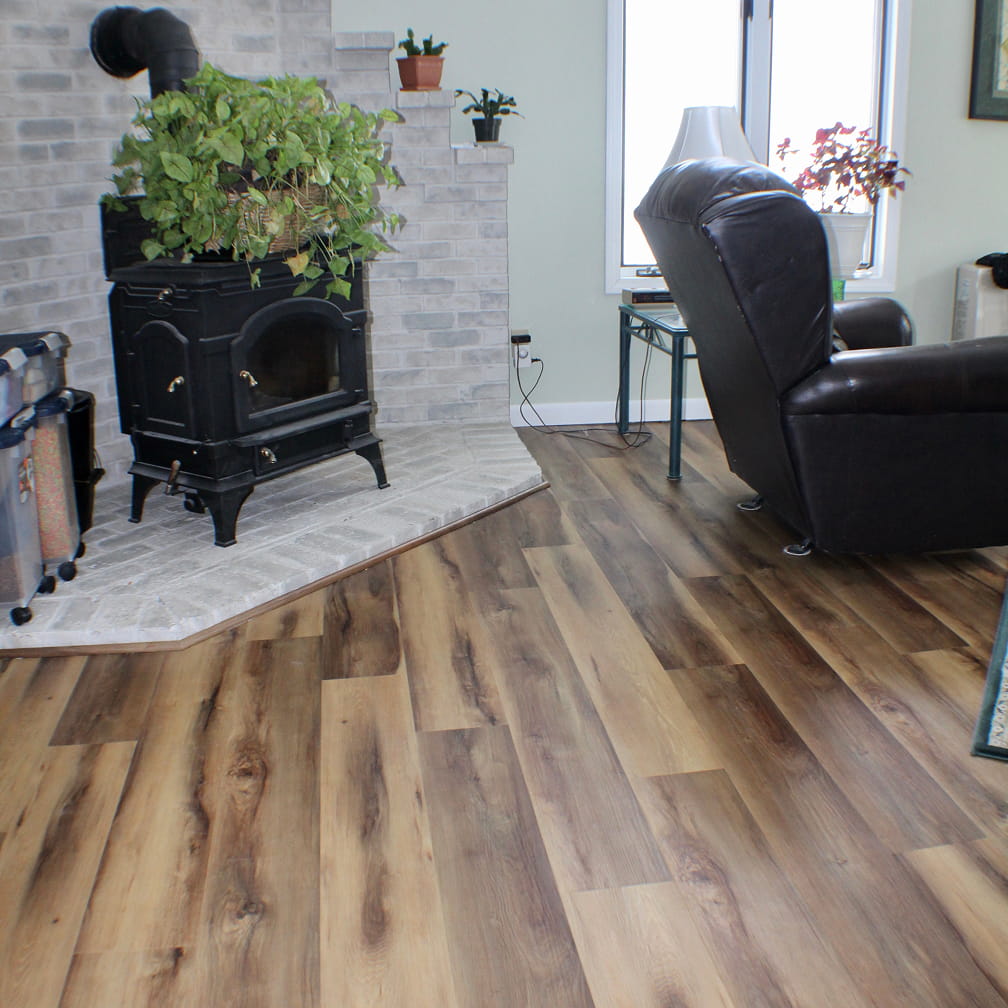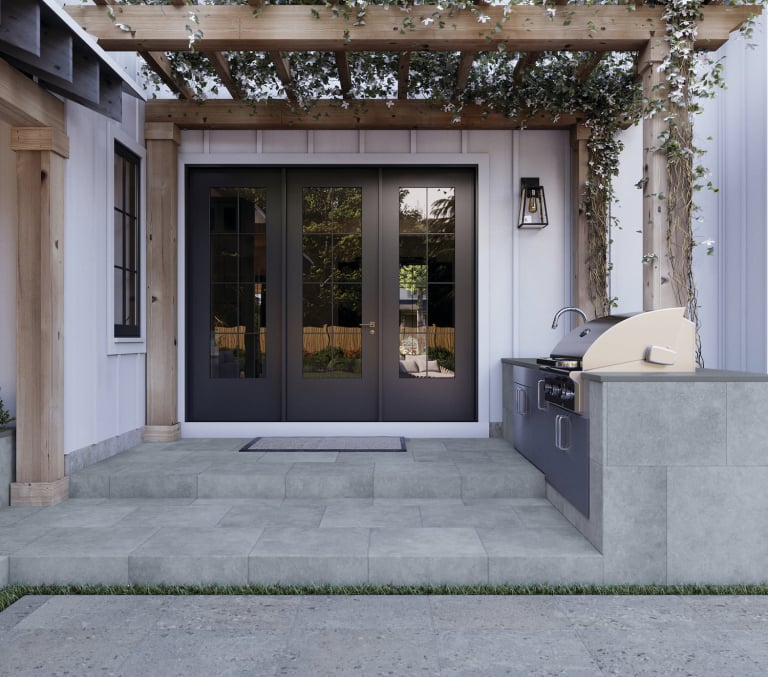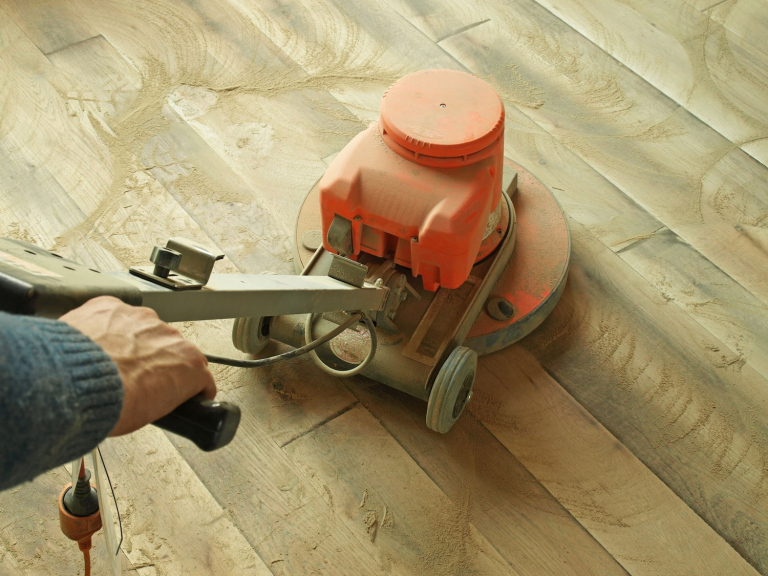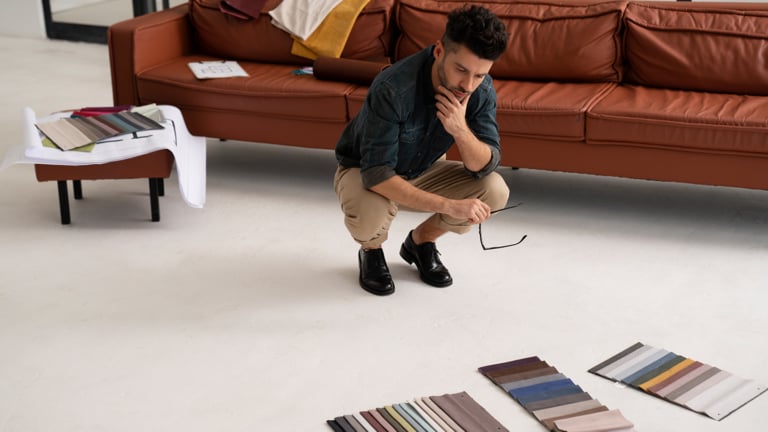Eco-Friendly Flooring Trends: Sustainable Solutions for Modern Vermont Homes

Key Takeaways
- Sustainable flooring materials like bamboo, cork, reclaimed wood, and natural linoleum offer exceptional environmental benefits while providing distinctive aesthetic appeal and performance advantages for Vermont homes.
- Low-VOC finishes and adhesives significantly improve indoor air quality while maintaining excellent durability, protecting family health without compromising performance.
- Durability represents a fundamental aspect of flooring sustainability, with proper material selection, professional installation, and appropriate maintenance extending useful life and reducing replacement frequency.
- Third-party certifications like FloorScore, GreenGuard, and FSC verify specific environmental claims, helping homeowners identify truly sustainable options among numerous "green" marketing claims.
- Manufacturing processes significantly impact the overall environmental footprint, and responsible producers implement energy efficiency, waste reduction, and water conservation strategies throughout production.
Transform Your Space with Sustainable Flooring Options That Combine Style, Durability, and Environmental Responsibility
The growing demand for eco-friendly flooring options reflects a fundamental shift in how Vermont homeowners approach renovation projects. As Vermont's leading flooring specialists, we've witnessed firsthand how sustainable flooring has evolved from a niche interest to a mainstream priority. Today's environmentally conscious homeowners no longer need to compromise on style, durability, or performance when choosing green flooring solutions.
At Abatiello Design Center, we're committed to helping you navigate the exciting world of sustainable flooring options. Our comprehensive selection includes everything from rapidly renewable materials to recycled content products that minimize environmental impact while maximizing aesthetic appeal and longevity. Whether you're renovating your kitchen, updating your living room, or completely transforming your home, our experienced team can guide you through the process of selecting eco-friendly flooring that aligns with your values and elevates your space.
Let's explore the latest eco-friendly flooring trends and discover how these sustainable materials can enhance your home while reducing your environmental footprint.
Sustainable Materials: Renewable Resources for Responsible Flooring
The foundation of eco-friendly flooring begins with sustainable materials that minimize environmental impact while delivering exceptional performance. Today's market offers an impressive array of options sourced from rapidly renewable resources and recycled materials, providing environmentally conscious homeowners with beautiful, durable flooring solutions.
Bamboo flooring stands out as a leading sustainable option, growing to maturity in just 3-5 years compared to the decades required for hardwood trees. This rapidly renewable resource creates flooring with remarkable hardness—often surpassing traditional hardwoods on the Janka hardness scale. Modern manufacturing techniques have addressed earlier concerns about durability, resulting in bamboo flooring that withstands heavy traffic while offering distinctive grain patterns. At Abatiello Design Center, we carry premium bamboo flooring options that provide the perfect balance of sustainability and performance for Vermont homes.
Cork flooring represents another excellent sustainable choice, harvested from the bark of cork oak trees without harming the tree itself. This unique harvesting process allows the tree to regenerate its bark, making cork a truly renewable resource. Beyond its environmental benefits, cork flooring offers natural insulation properties, sound absorption, and a comfortable, resilient surface underfoot. Its natural resistance to mold, mildew, and termites makes it particularly well-suited for Vermont's seasonal climate variations. Our selection of cork flooring materials includes a variety of colors and patterns to complement any interior design aesthetic.
Reclaimed wood flooring transforms salvaged timber from old barns, factories, and other structures into distinctive flooring with unmatched character and history. This recycling process not only diverts materials from landfills but also reduces demand for newly harvested timber. Each reclaimed wood floor tells a unique story through its patina, nail holes, and natural weathering—creating a one-of-a-kind statement in your home. Our flooring showroom features carefully curated reclaimed wood options that bring authentic Vermont character to contemporary spaces.
Linoleum, often confused with vinyl, is actually a natural, biodegradable flooring material made from linseed oil, pine resin, wood flour, cork dust, and mineral pigments on a jute backing. This completely natural composition makes it an environmentally responsible choice that's experiencing a renaissance in eco-conscious home design. Modern linoleum offers improved durability, a wide range of colors and patterns, and natural antimicrobial properties. Our flooring contractors can help you explore the versatility of this classic yet contemporary flooring option.
Low-VOC Finishes and Adhesives: Protecting Indoor Air Quality and Health
When considering eco-friendly flooring, the materials themselves are just part of the equation. The finishes and adhesives used during installation significantly impact both the environmental footprint and indoor air quality. Low-VOC (Volatile Organic Compound) products represent a critical advancement in sustainable flooring, minimizing harmful emissions while maintaining superior performance.
Water-based finishes have revolutionized the flooring industry by drastically reducing VOC emissions compared to traditional solvent-based alternatives. These environmentally responsible finishes release minimal harmful compounds during application and curing, protecting both the installer's health and your home's air quality. Modern water-based polyurethane finishes offer exceptional durability and clarity, highlighting the natural beauty of hardwood flooring materials while providing robust protection against daily wear. Our flooring installation services exclusively use premium low-VOC water-based finishes that meet or exceed the strictest environmental standards.
Natural oil finishes represent another excellent low-emission option, particularly for homeowners seeking an authentic, traditional appearance for wood flooring. These finishes penetrate the wood rather than forming a surface film, enhancing the natural grain patterns while allowing the material to breathe. Oil-finished floors develop a beautiful patina over time and can be spot-repaired without refinishing the entire surface—a significant advantage for long-term maintenance. At Abatiello Design Center, we offer several natural oil finish options, including those made from renewable plant oils that further enhance your flooring's environmental credentials.
Formaldehyde-free adhesives address one of the most significant indoor air quality concerns in flooring installation. Traditional adhesives often contain formaldehyde and other harmful chemicals that can off-gas for years after installation, compromising indoor air quality and potentially causing health issues. Our flooring contractors exclusively use formaldehyde-free, low-VOC adhesives that maintain excellent bonding properties without introducing harmful chemicals into your home. These advanced adhesives ensure that your eco-friendly flooring installation remains truly sustainable from subfloor to surface.
The benefits of choosing low-VOC flooring products extend beyond environmental responsibility. These healthier alternatives significantly improve indoor air quality, reducing the risk of respiratory irritation, headaches, and other symptoms associated with chemical exposure. For families with young children, elderly members, or individuals with respiratory sensitivities, low-VOC flooring options provide peace of mind along with beautiful, durable surfaces. Our experienced team can help you navigate the various certification standards that verify low-emission products, ensuring your flooring choices align with your health priorities.
Durability and Longevity: Sustainable Performance for Vermont Homes
True sustainability extends beyond initial material selection to encompass the entire lifecycle of your flooring. Durable, long-lasting floors reduce replacement frequency, conserving resources and minimizing waste. When evaluating eco-friendly flooring options for your Vermont home, consider performance characteristics alongside environmental credentials to ensure truly sustainable choices.
Choosing durable materials represents the foundation of sustainable flooring performance. Many eco-friendly options naturally excel in this area—engineered hardwood with multiple wear layers, strand-woven bamboo with exceptional hardness ratings, and properly finished cork with protective top coats all offer impressive longevity. At Abatiello Design Center, we carefully evaluate the performance characteristics of every sustainable flooring product we carry, ensuring it can withstand Vermont's unique climate conditions and lifestyle demands. Our flooring showroom displays samples that have undergone rigorous testing for scratch resistance, moisture stability, and overall durability.
Proper installation techniques dramatically impact flooring longevity, regardless of material type. Our professional flooring contractors bring decades of combined experience to every installation, following manufacturer specifications precisely while adapting to the specific conditions of your home. From proper acclimation of natural materials to precise subfloor preparation and moisture testing, we address every detail that contributes to long-term performance. This comprehensive approach prevents premature failure and extends the usable life of your eco-friendly flooring, maximizing its sustainability benefits.
Maintenance and care routines significantly influence flooring longevity. Even the most durable, sustainable materials require appropriate cleaning methods and preventive measures to maintain their appearance and performance. Our team provides detailed care instructions for every flooring type we install, from specific cleaning products to humidity control recommendations for natural materials. Regular maintenance not only preserves your floor's beauty but also extends its useful life—perhaps the most environmentally responsible approach to flooring.
The economic aspects of durability cannot be overlooked when evaluating sustainable flooring options. While some eco-friendly materials may have higher initial costs, their extended lifespan often results in lower lifetime expenses compared to less expensive alternatives requiring frequent replacement. This long-term perspective aligns perfectly with both environmental responsibility and sound financial planning. Our flooring specialists can help you calculate the true lifetime cost of different flooring options, factoring in durability, maintenance requirements, and energy impacts to identify the most sustainable choice for your specific situation.
Certification and Standards: Verifying Environmental Claims
Navigating the complex landscape of environmental claims requires reliable verification systems. Industry certifications provide crucial third-party validation of sustainability features, helping homeowners make informed decisions about truly eco-friendly flooring options. Understanding these standards ensures your flooring choices deliver on their environmental promises.
LEED (Leadership in Energy and Environmental Design) certification represents one of the most comprehensive frameworks for sustainable building practices, including flooring materials. LEED-compliant flooring contributes valuable points toward overall building certification through attributes like recycled content, regional sourcing, and low emissions. For Vermont homeowners pursuing LEED certification or simply following its principles, our flooring specialists can identify which products meet specific LEED criteria. We maintain detailed documentation on the environmental attributes of our flooring materials, streamlining the verification process for green building projects.
FloorScore certification specifically addresses the indoor air quality impacts of hard surface flooring products and associated installation materials. Developed by the Resilient Floor Covering Institute (RFCI) in collaboration with SCS Global Services, this rigorous standard tests products for compliance with California's stringent indoor air quality requirements. FloorScore-certified flooring materials undergo testing for 35 individual volatile organic compounds, ensuring minimal impact on indoor air quality. At Abatiello Design Center, we prioritize FloorScore-certified options across our vinyl, laminate, and hard surface flooring collections, providing peace of mind regarding indoor air quality.
GreenGuard certification, administered by UL Environment, provides another important verification of low chemical emissions from flooring products. This program offers two certification levels: GreenGuard and GreenGuard Gold, with the latter meeting even stricter criteria for sensitive environments like schools and healthcare facilities. Products earning GreenGuard certification have been scientifically proven to meet some of the world's most rigorous third-party chemical emissions standards, supporting better indoor air quality. Our flooring showroom features numerous GreenGuard-certified options, clearly identified to help environmentally conscious homeowners make informed choices.
Forest Stewardship Council (FSC) certification specifically addresses wood and wood-derived flooring products, verifying responsible forest management practices throughout the supply chain. FSC-certified hardwood, bamboo, and cork flooring comes from forests managed according to strict environmental, social, and economic standards. This certification ensures your natural flooring materials support sustainable forestry rather than contributing to deforestation or habitat destruction. As Vermont's leading flooring specialists, we offer an extensive selection of FSC-certified wood flooring options that combine environmental responsibility with exceptional beauty and performance.
Manufacturing Processes: The Hidden Environmental Impact
The environmental footprint of flooring extends far beyond the visible materials in your home. Manufacturing processes significantly impact overall sustainability, affecting energy consumption, waste generation, and resource utilization. Forward-thinking manufacturers are implementing innovative approaches to minimize these hidden environmental costs while producing high-performance flooring products.
Reduced waste manufacturing represents a fundamental shift in production philosophy, focusing on maximizing material utilization and minimizing scrap. Advanced cutting techniques, precise inventory management, and innovative product designs all contribute to more efficient resource use. Some manufacturers have achieved near-zero waste production through comprehensive recycling programs that reincorporate production scraps into new flooring materials. At Abatiello Design Center, we partner with manufacturers committed to waste reduction, ensuring your flooring choices support responsible production practices from raw material to finished product.
Energy-efficient production significantly reduces the carbon footprint associated with flooring manufacturing. Leading companies have invested in renewable energy sources, high-efficiency equipment, and optimized production schedules to minimize energy consumption. Some facilities utilize solar arrays, wind power, or biomass energy to further reduce environmental impact. When evaluating eco-friendly flooring options, our team considers these behind-the-scenes factors that contribute to true sustainability. We can provide information about the energy practices of different manufacturers, helping you make comprehensive green choices.
Responsible sourcing of raw materials ensures that sustainability extends to the very beginning of the production chain. This includes ethical labor practices, habitat protection, and transportation considerations that minimize overall environmental impact. Manufacturers committed to responsible sourcing often maintain transparent supply chains, allowing verification of environmental claims throughout the production process. Our flooring contractors work with companies that demonstrate this commitment to comprehensive sustainability, from forest to factory to your Vermont home.
Water conservation represents another critical aspect of sustainable manufacturing, particularly for water-intensive processes like certain types of dyeing and finishing. Closed-loop water systems, advanced filtration, and process optimization significantly reduce both water consumption and wastewater production. These practices protect local watersheds while conserving precious resources. When recommending eco-friendly flooring options, we consider these water impacts alongside more visible environmental attributes, ensuring your choices align with comprehensive sustainability goals.
End-of-Life Considerations: Completing the Sustainability Cycle
A truly sustainable approach to flooring must address what happens when materials reach the end of their useful life. Forward-thinking manufacturers and informed consumers are increasingly considering recyclability, biodegradability, and proper disposal methods as essential components of eco-friendly flooring choices. These end-of-life considerations complete the sustainability cycle, preventing today's flooring from becoming tomorrow's environmental burden.
Recyclability varies significantly among flooring materials, with some offering straightforward recycling paths while others present greater challenges. Certain carpet manufacturers have implemented take-back programs that reclaim used carpet for recycling into new flooring or other products. Some vinyl and laminate flooring can be processed into composite materials for various applications. Natural materials like hardwood and bamboo may be repurposed or recycled into other wood products at the end of their flooring lifecycle. At Abatiello Design Center, we can help you understand the recycling potential of different flooring options and connect you with appropriate recycling programs when replacement time arrives.
Biodegradability represents a valuable attribute for natural flooring materials that cannot be practically recycled. Untreated wood, cork, and natural linoleum will decompose naturally over time, returning to the earth without leaving persistent synthetic residues. This natural breakdown process completes the biological cycle, particularly for materials derived from renewable resources. For environmentally conscious Vermont homeowners, these naturally biodegradable options offer peace of mind regarding long-term environmental impact. Our flooring specialists can help you identify truly biodegradable materials that meet your performance requirements while aligning with your sustainability values.
Proper disposal methods become essential for flooring materials that cannot be recycled or composted. Understanding local regulations and available facilities ensures responsible handling of flooring waste, minimizing environmental impact even when recycling isn't feasible. Some materials require special handling to prevent contamination of other waste streams or to capture potentially harmful components. Our experienced team stays informed about disposal requirements for various flooring types and can provide guidance when removal becomes necessary. This knowledge helps you maintain your commitment to environmental responsibility throughout your flooring's entire lifecycle.
Upcycling presents an increasingly popular alternative to conventional disposal, transforming used flooring into new products with different functions. From artistic applications to practical repurposing, creative approaches can extend the useful life of materials that would otherwise enter the waste stream. Reclaimed wood flooring represents a prime example of successful upcycling on a commercial scale. Our design consultants can suggest potential upcycling opportunities for your existing flooring when you're ready for a change, supporting the circular economy while preserving the embodied resources in your current materials.
Health and Indoor Air Quality: Benefits Beyond Environmental Impact
The advantages of eco-friendly flooring extend well beyond environmental protection to encompass significant health benefits for your home and family. Sustainable flooring choices often deliver superior indoor air quality, reduced allergen accumulation, and healthier living environments. These health considerations represent a powerful additional motivation for choosing eco-friendly flooring materials.
VOC emissions from traditional flooring materials and installation products can significantly compromise indoor air quality, potentially causing respiratory irritation, headaches, and other health issues. These chemical emissions may continue for years after installation, creating long-term exposure concerns. Eco-friendly alternatives specifically designed to minimize VOC content protect your home's air quality from the moment of installation. At Abatiello Design Center, we prioritize low-emission flooring materials and installation products, helping you create a healthier indoor environment while reducing environmental impact. Our flooring contractors follow strict protocols to minimize chemical exposure during installation, further protecting your home's air quality.
Allergen reduction represents another important health benefit of many sustainable flooring options. Hard surface materials like bamboo, cork, and natural stone provide fewer hiding places for dust mites, pet dander, and other common allergens compared to conventional carpet. These smooth, non-porous surfaces allow for more effective cleaning and allergen removal, supporting better respiratory health. For Vermont families dealing with allergies or asthma, these easy-to-clean, sustainable surfaces can significantly improve quality of life. Our flooring specialists can help you identify the most allergen-resistant options that meet your specific health needs while delivering the aesthetic and performance characteristics you desire.
Mold and mildew resistance provides crucial protection in Vermont's variable climate conditions. Many eco-friendly flooring materials naturally resist fungal growth through inherent properties or specialized manufacturing processes. Cork contains natural compounds that inhibit microbial growth, while certain sustainable hard surfaces resist moisture penetration that could support mold development. These natural protections maintain healthier indoor environments without requiring chemical fungicides. Our experienced team understands the unique moisture challenges of Vermont homes and can recommend sustainable flooring options specifically suited to your home's conditions.
Natural antibacterial properties characterize several sustainable flooring materials, providing additional health benefits without chemical additives. Cork and linoleum both demonstrate natural resistance to bacteria, supporting cleaner surfaces with fewer harsh cleaning chemicals. These inherent protective qualities contribute to healthier indoor environments while reducing the need for chemical-intensive maintenance routines. When helping you select eco-friendly flooring, our design consultants consider these natural health-promoting characteristics alongside environmental credentials and performance features, ensuring your flooring choice delivers comprehensive benefits.
FAQs
What makes a flooring material truly eco-friendly?
Truly eco-friendly flooring combines several key attributes rather than simply meeting a single green criterion. Sustainable sourcing ensures materials come from renewable resources or recycled content, minimizing environmental impact from extraction and production. Manufacturing processes should emphasize energy efficiency, waste reduction, and water conservation. The finished product should contain minimal harmful chemicals and emit few or no volatile organic compounds (VOCs) that could compromise indoor air quality. Durability represents another crucial factor—longer-lasting floors require less frequent replacement, conserving resources over time. Finally, end-of-life recyclability or biodegradability completes the sustainability cycle. At Abatiello Design Center, we evaluate all these factors when selecting eco-friendly flooring options for our Vermont customers, ensuring comprehensive environmental responsibility rather than superficial "greenwashing."
How do low-VOC finishes contribute to better indoor air quality?
Low-VOC finishes dramatically improve indoor air quality by minimizing the release of harmful volatile organic compounds that can cause respiratory irritation, headaches, and other health issues. Traditional solvent-based finishes may continue emitting these chemicals for months or even years after application, creating long-term exposure concerns. Water-based and natural oil finishes contain significantly fewer harmful compounds while still providing excellent protection and appearance. This reduction in chemical emissions creates healthier indoor environments, particularly beneficial for individuals with respiratory sensitivities, children, and the elderly. Our flooring installation services exclusively use low-VOC finishes that meet or exceed the strictest environmental standards, protecting your family's health while enhancing your home's sustainability profile.
What are the most durable, eco-friendly flooring options for high-traffic areas?
Several eco-friendly flooring options excel in high-traffic durability while maintaining impressive environmental credentials. Strand-woven bamboo stands out for its exceptional hardness—often surpassing traditional hardwoods on standard durability tests. This rapidly renewable resource creates flooring that withstands heavy use while offering distinctive aesthetic appeal. Cork flooring with appropriate wear layers provides another durable option, naturally resisting dents through its cellular structure while offering comfort underfoot. For maximum durability, certain recycled content tile and natural stone options provide virtually indestructible surfaces with minimal environmental impact. Our flooring specialists can help you match the specific durability requirements of your high-traffic areas with the most appropriate sustainable materials, ensuring long-lasting performance that minimizes replacement frequency.
What certifications should I look for when choosing sustainable flooring?
When selecting sustainable flooring, several key certifications verify specific environmental attributes. FloorScore certification addresses indoor air quality, confirming that hard surface flooring and installation materials meet strict emission limits for 35 individual VOCs. GreenGuard certification, particularly GreenGuard Gold, similarly verifies low chemical emissions from flooring products. For wood and wood-derived materials, Forest Stewardship Council (FSC) certification ensures responsible forest management throughout the supply chain. LEED compliance indicates that materials contribute to green building certification through attributes like recycled content and regional sourcing. At Abatiello Design Center, we clearly identify certified products and can explain the specific environmental attributes verified by each standard, helping you make informed choices that align with your sustainability priorities.
How does the manufacturing process impact the environmental footprint of flooring?
Manufacturing processes significantly influence flooring's overall environmental impact through energy consumption, waste generation, water usage, and transportation considerations. Energy-efficient production utilizing renewable power sources substantially reduces the carbon footprint compared to conventional manufacturing. Waste reduction strategies that reincorporate production scraps minimize landfill impact while conserving raw materials. Water conservation through closed-loop systems protects local watersheds while preserving precious resources. Transportation efficiency, including local sourcing where possible, further reduces environmental impact. As Vermont's leading flooring specialists, we partner with manufacturers committed to sustainable production practices, considering these behind-the-scenes factors when selecting eco-friendly options for our customers. Our team can provide information about specific manufacturers' environmental initiatives, helping you make comprehensively sustainable choices.
What are the best ways to dispose of or recycle old flooring materials?
Responsible disposal or recycling of old flooring materials completes the sustainability cycle, preventing unnecessary landfill waste. For carpet, several manufacturers offer take-back programs that reclaim used material for recycling into new flooring or other products. Wood flooring can often be repurposed or recycled into other wood products, particularly if it's solid hardwood rather than engineered construction. Vinyl and laminate flooring may be accepted by specialized recycling facilities capable of processing these composite materials. For materials without established recycling channels, proper disposal following local regulations ensures minimal environmental impact. Our experienced team can provide guidance on the most appropriate end-of-life options for your specific flooring type, connecting you with recycling programs when available or advising on responsible disposal methods when necessary.
How do eco-friendly flooring options compare in terms of cost and maintenance?
While some eco-friendly flooring options may have higher initial costs than conventional alternatives, their lifetime value often proves superior when considering durability, maintenance requirements, and health benefits. Bamboo flooring typically costs slightly more than standard hardwood but offers comparable or better durability with simplified maintenance. Cork provides excellent value through natural insulation properties that reduce energy costs while requiring only basic maintenance. Reclaimed wood may command premium prices but delivers unmatched character and potential appreciation in home value. Regarding maintenance, many sustainable options simplify care routines—hard surfaces require less intensive cleaning than carpet, while natural materials often need fewer harsh chemicals for proper maintenance. Our design consultants can help you evaluate both initial and lifetime costs of different eco-friendly options, identifying the best value for your specific situation and priorities.
As Vermont's leading flooring specialists, Abatiello Design Center remains committed to helping you navigate the exciting world of eco-friendly flooring options. Our experienced team provides expert guidance from initial consultation through professional installation, ensuring your sustainable flooring choice delivers environmental benefits, health advantages, and exceptional performance. Visit our Rutland showroom to explore our extensive selection of eco-friendly flooring materials and discover the perfect sustainable solution for your home renovation project.


